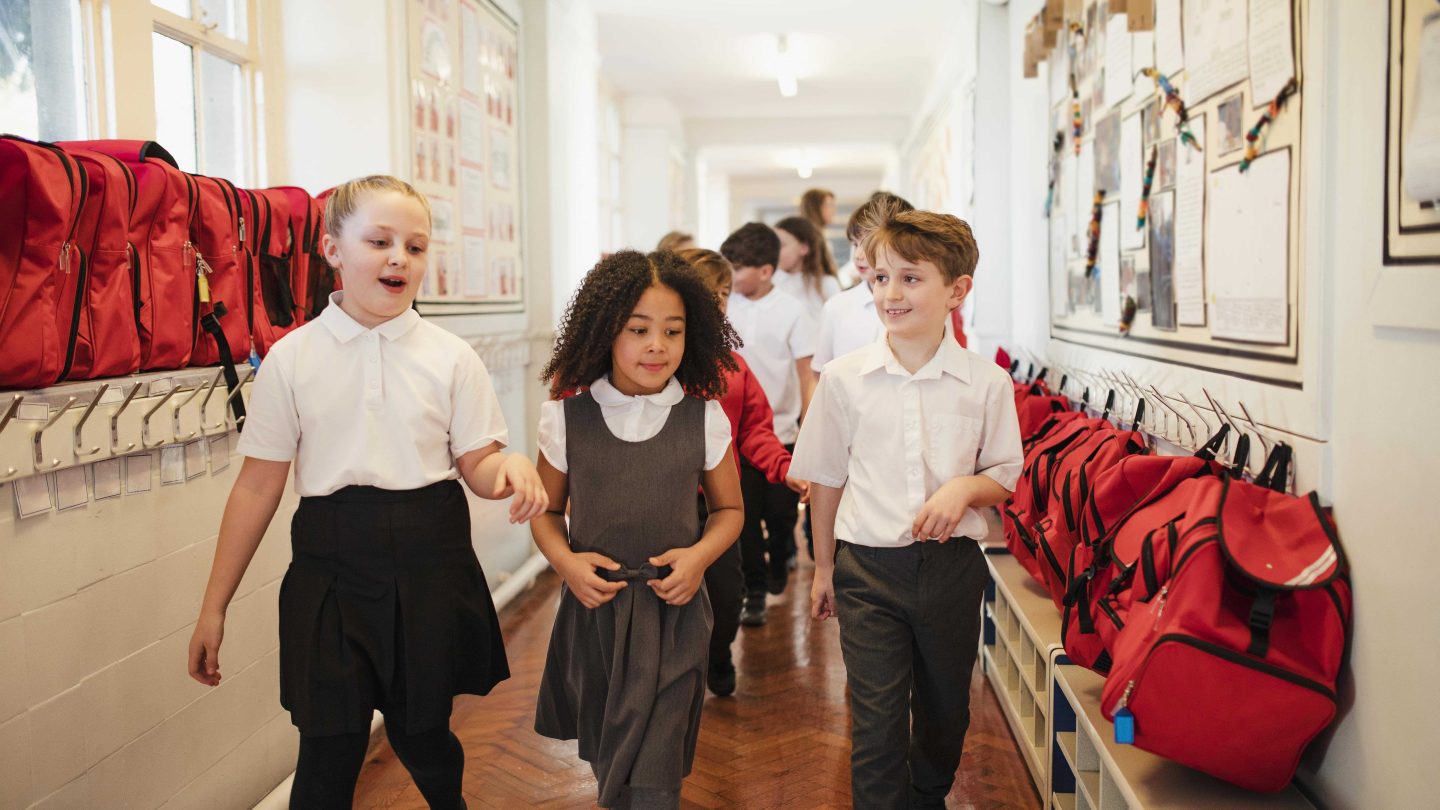Building social skills: How to support your child’s friendships
 Image: Primary school-aged children walking down a school corridor, talking.
Image: Primary school-aged children walking down a school corridor, talking.
Strong social skills are essential for primary school children navigating friendships and social interactions. Here are some effective strategies to support your child in building and maintaining healthy friendships.
Encourage playdates
Organise regular playdates with classmates and neighbourhood children. Playdates allow your child to practice social skills in a relaxed and familiar environment.


